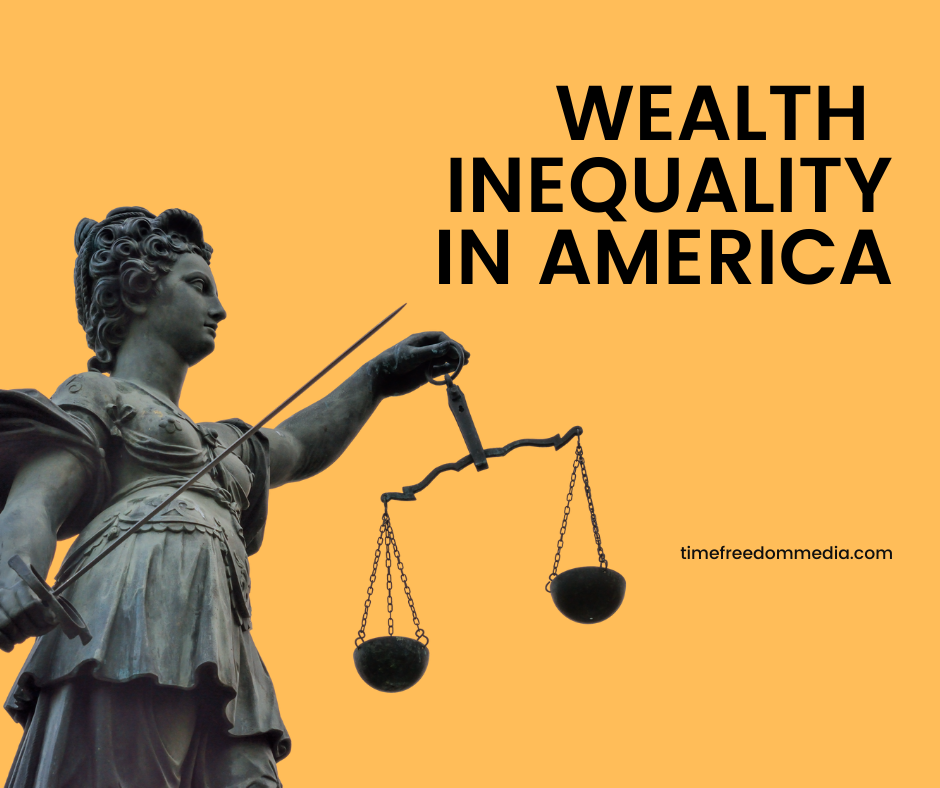Wealth inequality in America. In the United States, the wealthiest 1 percent of households own more of the country’s wealth than ever before. According to a report from The Washington Post, the top 1 percent owned 38.6 percent of all wealth in 2012, up from 34.6 percent in 2007. This growing disparity is a major concern for many economists and policy makers.
One reason for this trend is that the wealthy have been disproportionately benefiting from the stock market recovery following the Great Recession. While the stock market has rebounded substantially since 2009, median household wealth has remained largely unchanged. In fact, according to a report from Pew Research Center, median wealth for white households dropped by 18 percent between 2010 and 2013, while African American and Hispanic households saw their median wealth decline by 53 and 66 percent, respectively.
There are a number of potential policy solutions that could help address this issue
Income and wealth inequality has been on the rise in the United States for decades. This is especially true for the wealthiest percentiles, who have seen their share of the country’s total income and wealth increase significantly. While there are a number of potential policy solutions that could help address this issue, most of them involve significant changes to the tax code or government spending programs. Such changes would be difficult to enact and would likely face strong opposition from those who benefit most from the current system.
The trend of growing wealth inequality
The trend of growing wealth inequality is a cause for concern. There has been some recovery from the Great Recession. However, the wealthiest one percent of Americans have captured 95 percent of the gains. This trend is even more troubling when you consider that the bottom 90 percent have seen their incomes stagnate or decline in recent years.
There are a number of reasons for this growing wealth inequality. The first is that our tax code benefits those who have the most money. The second is that technology and globalization have led to increased competition for jobs. This has put downward pressure on wages. And finally, we have seen a dramatic increase in corporate profits. At the same time, wages as a percentage of GDP are at an all-time low.
We need to take action to address this growing problem. We should start by closing the loopholes in our tax code and increasing taxes on the wealthy.
Causes of wealth inequality
There are many causes of wealth inequality, including differences in education, work experience, and occupation. But one of the biggest drivers is our tax system, which favors those at the top. For example, the top marginal tax rate has fallen from nearly 90 percent in the 1950s to 39.6 percent today. There have been some steps to close the gap in recent years. Such as raising the minimum wage and expanding access to health care—more needs to be done.
Consequences of wealth inequality in America
There are a number of reasons for this growing wealth inequality. First, the wealthy have benefited from a series of tax cuts over the past few decades. While the poor have seen their taxes increase. Second, the wealthy have access to better education and job opportunities, which give them a head start in accumulating wealth.
Solutions to wealth inequality in America
There are many potential solutions to this problem. One approach is to raise taxes on the wealthy. Then invest the money in programs that help reduce inequality and improve economic mobility. Another option is to encourage entrepreneurship and innovation by providing financial support and incentives for small businesses. Finally, we can reduce consumer debt and increase savings rates. Thus making it easier for people to save money and invest in assets such as housing and education.
Conclusion
In conclusion, it is evident that the wealthiest 1% of Americans own more of the country’s wealth than ever before. We need to elect officials who are committed to making sure that all Americans have a chance to succeed. We also need to demand change from our current leaders, and support policies that will reduce income inequality.

